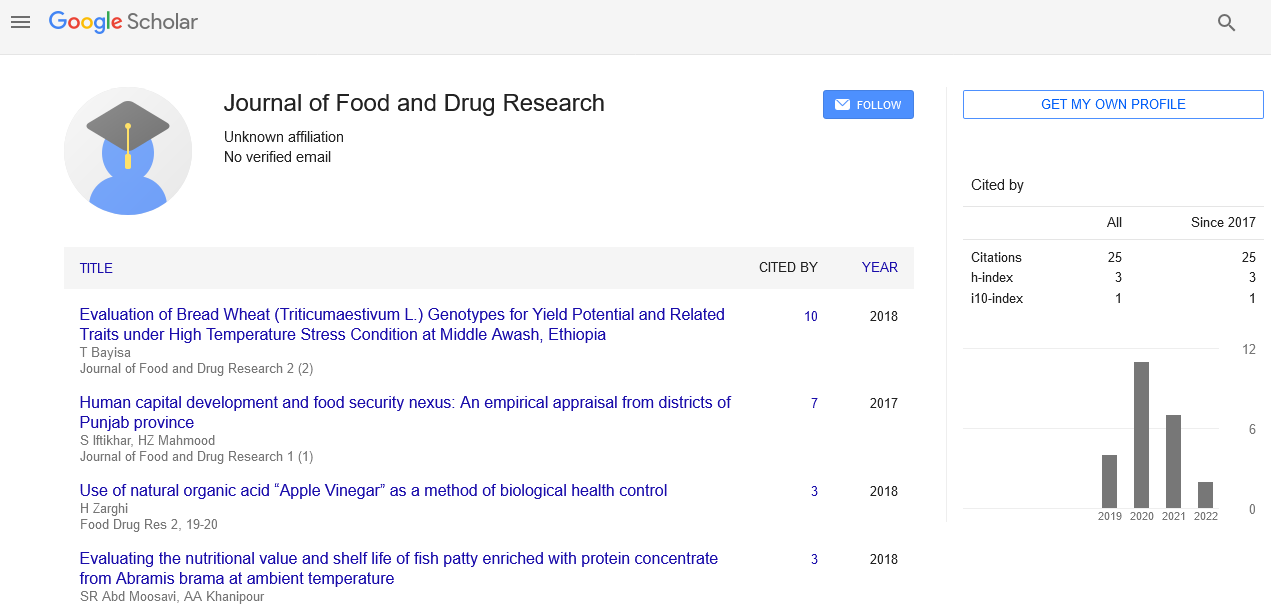Revival of organic foods: fiction or reality
Received: 12-Aug-2017 Accepted Date: Aug 13, 2017; Published: 13-Aug-2017
Citation: Waqar Islam. Revival of Organic Foods; Fiction or Reality?. J Food Drug Res. August-2017;1(1):1.
This open-access article is distributed under the terms of the Creative Commons Attribution Non-Commercial License (CC BY-NC) (http://creativecommons.org/licenses/by-nc/4.0/), which permits reuse, distribution and reproduction of the article, provided that the original work is properly cited and the reuse is restricted to noncommercial purposes. For commercial reuse, contact reprints@pulsus.com
Editorial
Looking into the history, when there were no pesticides, fertilizers, it is believed that the food quality was good and the produce harvested from the fields was organic as un-natural products were utilized to grow the crops. The food was not only considered healthy but also was safer to human health and ecosystem. However, with the passage of time, population increased rapidly which lead towards the reduction in cropping area and cultivatable land. On the other hand, increase in yield of crops became necessary to feed the population. To accomplish this task, artificial fertilizers, synthetic chemicals and micronutrient supplements were introduced which enhanced the production.
Oppositely, these synthetic chemicals and fertilizers had strong residual effects towards the environment and human health. This caused a huge disaster towards the community as it increased the human health problems exponentially thus increasing the production of curative medicines against various diseases. But in the 21st century, people are now more aware of their health issues and they believe that care is better than cure.
People now prefer the organic foods for their consumption in their daily life. But a question arises, are these foods are really organic or it’s just a marketing hype? Because, the increasing demand of organic products also caused 25% increase in their prices. This price hike raise the question, Is the organic product is really chemical free or producers are just putting organic labels on these to increase the price. Producers reply that they get certification before marketing their products. Although there are agencies like USDA, European Union, Agriculture Biologique, Bio-nech and many others who give certification for organic foods but here again we see that there can be negligence and money involved to take organic certifications from companies. That means the organic fate of the food is determined by humans and humans are not always correct in taking decisions or implementation of policies.
For example, implementations of three year rule for farmers to grow chemical free crops consecutively to ensure organic farming is very difficult. Similarly, if the farm is situated adjacent to the farm which utilizes chemicals, it can also lead to contamination of nearby organic fields. Regarding price they say that yield of organic crops is less due to non-utilization of chemicals.
But this is not true as the betterment in soil properties in organic fields have been observed which can increase the productivity up to some extent. Sometimes there are several other factors which contribute towards quality of organic products as well. Such as, organic foods which people buy from market are brought from far away. This may lead towards their contamination as the transporters are always reluctant to follow the organic standards for transportation.
I suggest consumer should buy locally available organic products. Some studies do confirm that organically produced food items have better taste while others do not completely certify that organics are super safe for environment and human health. Furthermore, there are no evident studies that how much pesticide residues human are absorbing in their life per year and also there are no studies completely verifying that all natural treatments applied to grow organic crops are also safer for human health. Considering all the facts, I think that organic is nothing more than marketing hype, created to make people spend more money. I believe rather than purchasing high priced food, it is better to be smarter such as wash the food, scrub the peel, trim the extra fats from meat products and be mentally satisfied that all you have eaten is good for your health.






